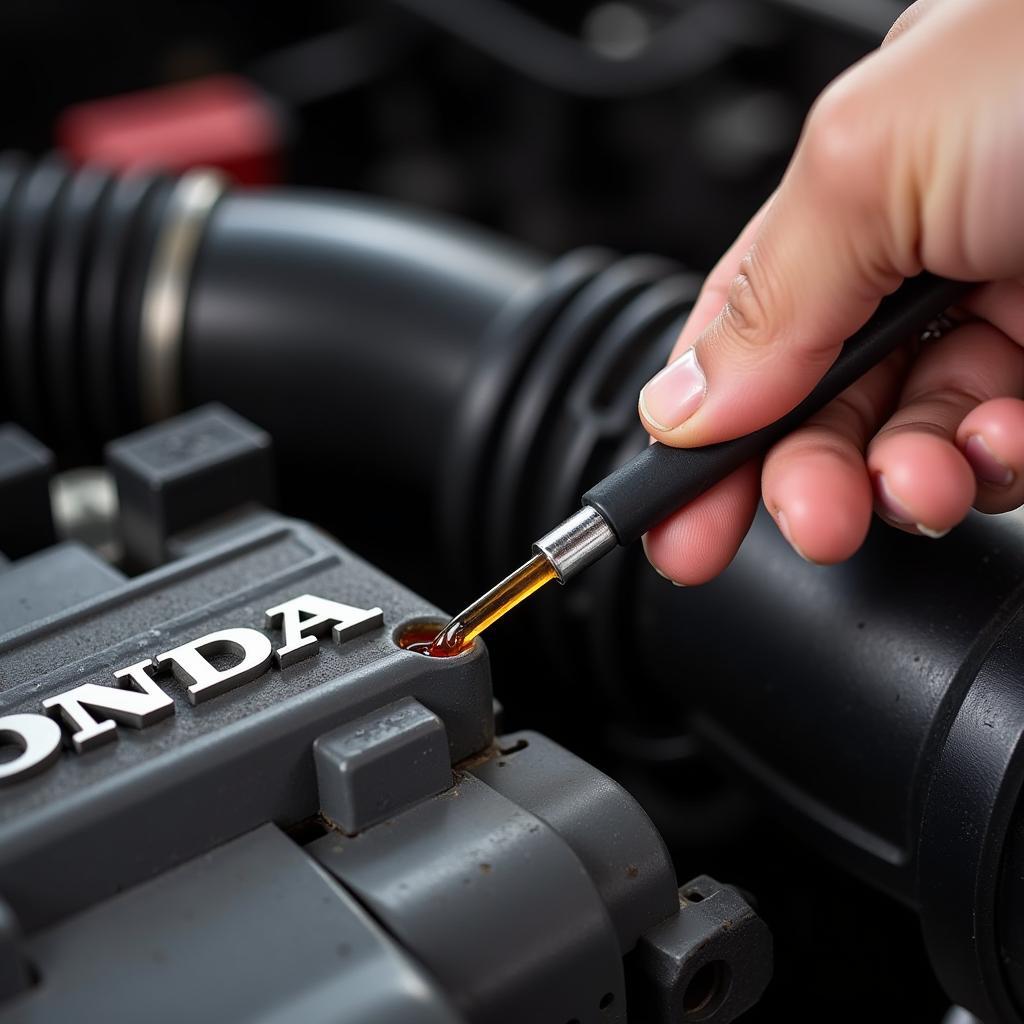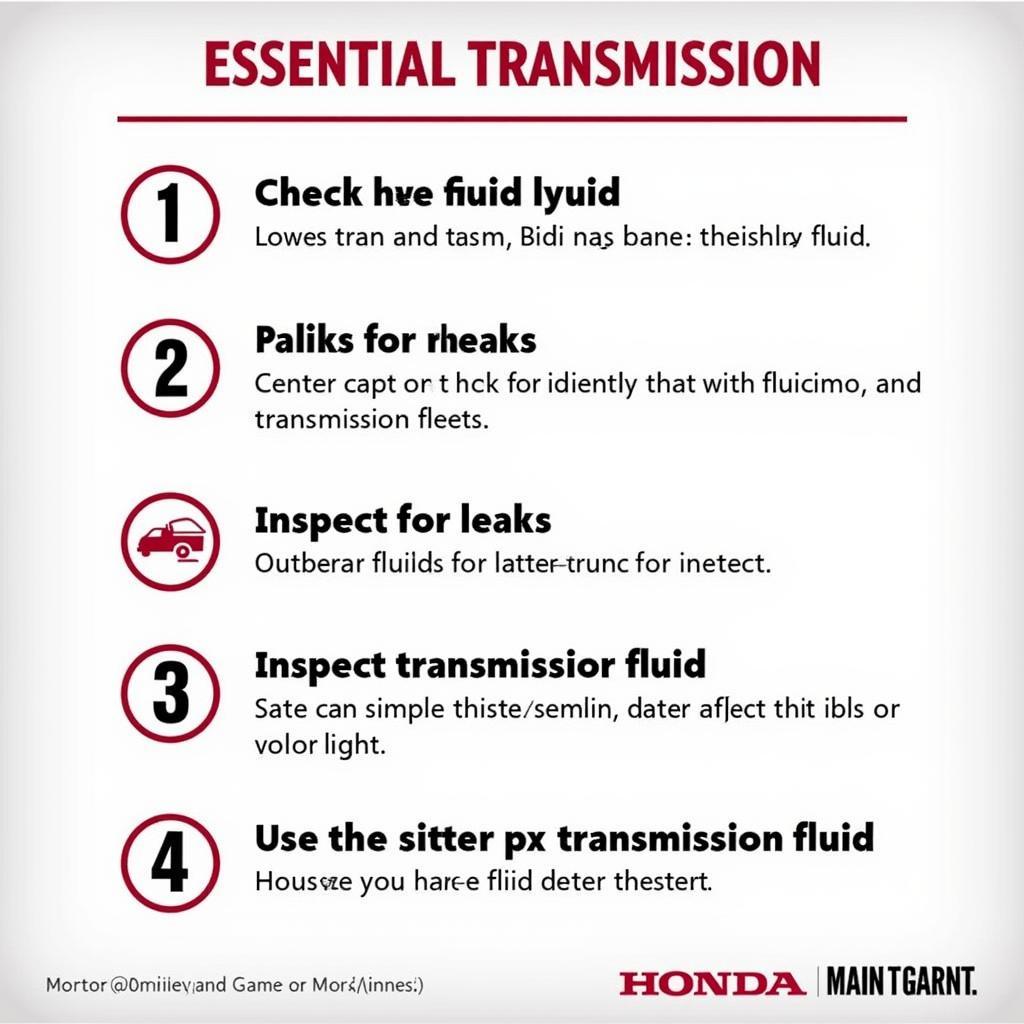Do Honda Cars Normally Have Transmission Problems? It’s a question many potential buyers ask, and understandably so. A reliable transmission is crucial for a smooth and safe driving experience. While Honda has a reputation for reliability, some models have experienced transmission issues, prompting concerns and online discussions. Let’s dive into the details and separate fact from fiction.
Understanding Honda Transmission Issues
Hondas are generally reliable vehicles, but like any car, they can experience problems. Transmission issues are among the concerns that some Honda owners have reported. These issues can range from minor annoyances to major malfunctions, impacting drivability and overall cost of ownership.
Common Honda Transmission Problems
- Slipping Gears: This often feels like the car is momentarily in neutral while accelerating. It’s a serious issue that requires immediate attention.
- Rough Shifting: A jerky or clunky feeling when changing gears can indicate a problem with the transmission fluid, solenoids, or the transmission itself.
- Delayed Engagement: A pause between shifting into gear and the car actually responding can be a sign of a developing transmission problem.
- Transmission Fluid Leaks: Low transmission fluid levels can lead to a variety of issues, including overheating and damage to internal components. Regular checks are crucial.
- Grinding or Whining Noises: Unusual noises coming from the transmission, especially when shifting gears, warrant a professional inspection.
 Honda Transmission Problems: Slipping Gears
Honda Transmission Problems: Slipping Gears
Do Honda Cars Normally Have Transmission Problems: Specific Models
While not all Hondas have transmission problems, certain models have historically been more prone to issues than others. This doesn’t mean every car of these models will have problems, but it’s important to be aware of potential issues. Some of the models that have seen transmission-related complaints include the Honda Civic, particularly models from the early 2000s, and some CR-V models. Researching specific model years and their known issues is crucial before purchasing a used Honda.
Identifying Potential Transmission Issues: What to Look For
When considering purchasing a used Honda, being proactive can save you from future headaches. Pay attention to the following:
- Check the Car’s History: A thorough vehicle history report can reveal previous transmission repairs or issues.
- Test Drive Thoroughly: Pay close attention to how the car shifts through all gears. Listen for unusual noises and feel for any hesitation or slippage.
- Inspect the Transmission Fluid: Check the fluid level and condition. Low or burnt-smelling fluid can indicate a problem.
- Get a Pre-Purchase Inspection: A qualified mechanic can thoroughly inspect the transmission and identify any potential issues before you buy the car.
 Checking Honda Transmission Fluid
Checking Honda Transmission Fluid
Maintaining Your Honda Transmission: Tips for Longevity
Proper maintenance is key to preventing transmission problems and extending the life of your Honda’s transmission.
- Regular Fluid Changes: Follow Honda’s recommended intervals for transmission fluid changes. Using the correct type of fluid is crucial.
- Avoid Aggressive Driving: Hard acceleration and sudden braking put extra stress on the transmission.
- Address Minor Issues Promptly: Don’t ignore any warning signs, such as rough shifting or unusual noises. Early intervention can prevent minor problems from escalating into major repairs.
 Honda Transmission Maintenance Tips
Honda Transmission Maintenance Tips
Conclusion: Do Honda Cars Normally Have Transmission Problems?
So, do Honda cars normally have transmission problems? While some models have experienced issues, it’s not a universal problem across the entire brand. By being informed about potential issues, conducting thorough inspections, and adhering to a regular maintenance schedule, you can significantly reduce the risk of encountering transmission problems in your Honda. Remember, a little preventative care can go a long way in ensuring a smooth and enjoyable driving experience. Need expert advice? Contact AutoTipPro at +1 (641) 206-8880 or visit our office at 500 N St Mary’s St, San Antonio, TX 78205, United States.
 Honda Car Driving Smoothly on the Road
Honda Car Driving Smoothly on the Road
FAQ
-
What are the most common signs of Honda transmission problems? Slipping gears, rough shifting, delayed engagement, and unusual noises are common indicators.
-
How often should I change my Honda’s transmission fluid? Consult your owner’s manual for the recommended interval, as it varies by model and year.
-
Can I check my Honda’s transmission fluid myself? Yes, most Hondas have a transmission dipstick for checking the fluid level and condition.
-
How much does it cost to repair a Honda transmission? The cost varies depending on the severity of the problem and the specific model, but it can range from a few hundred to several thousand dollars.
-
Are all Honda models equally prone to transmission problems? No, certain models and model years have historically been more prone to issues than others. Research specific models before purchasing.
-
What should I do if I suspect my Honda has a transmission problem? Take it to a qualified mechanic for a diagnosis and repair as soon as possible.
-
Can regular maintenance prevent Honda transmission problems? Yes, regular fluid changes and avoiding aggressive driving can significantly extend the life of your transmission.




Leave a Reply